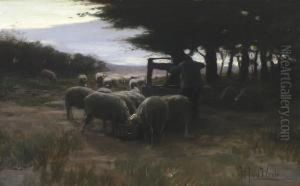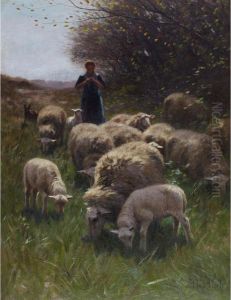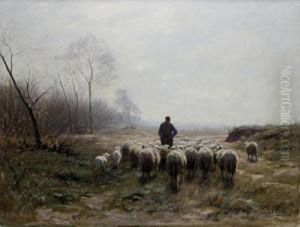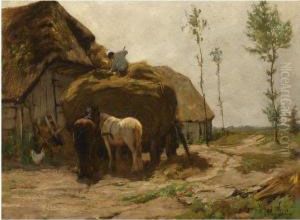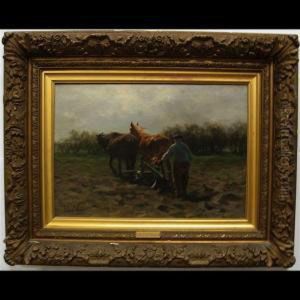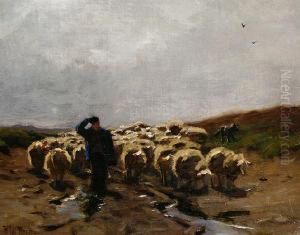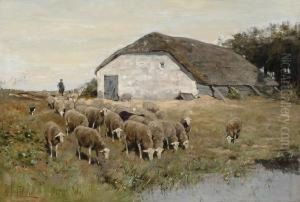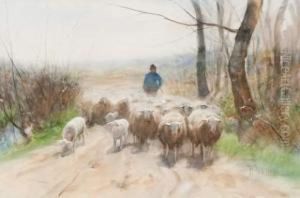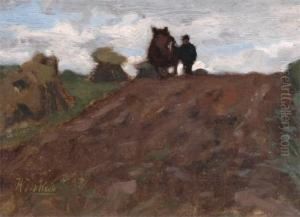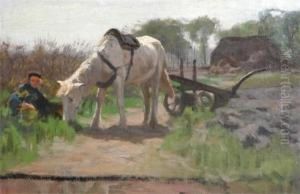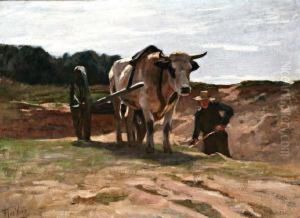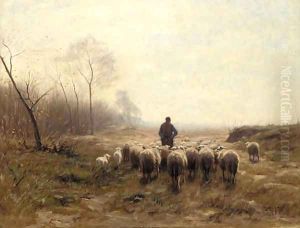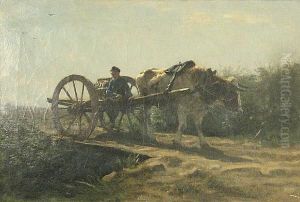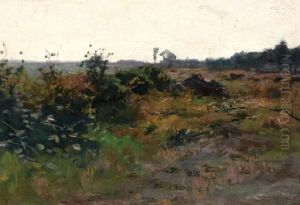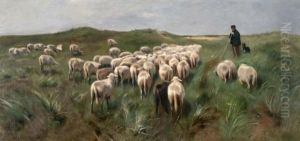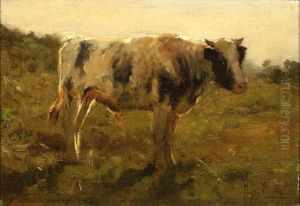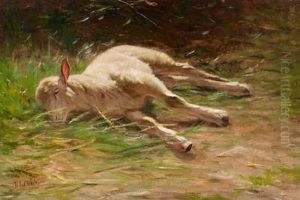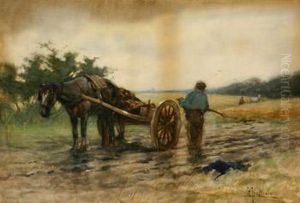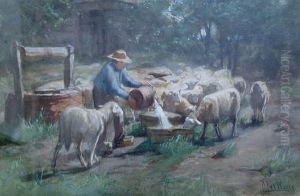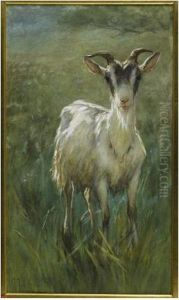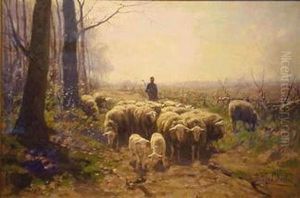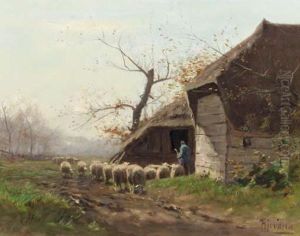Hermann Johannes Van Der Weele Paintings
Hermann Johannes Van Der Weele was a Dutch painter known for his depictions of rural life and animals, particularly sheep. Born on August 13, 1852, in Middelburg, Netherlands, he developed an interest in art at a young age. Weele's early work was influenced by the Hague School, a group of artists who lived and worked in The Hague during the late 19th century, and whose work focused on the Dutch countryside and its inhabitants.
Weele received his formal training at the Royal Academy of Art in The Hague. He was particularly adept at capturing the serene atmosphere of pastoral scenes and the harmonious relationship between shepherds and their flocks. His paintings often evoke a sense of calm and are characterized by their realistic portrayal of light and shadow, which he used to enhance the mood of his compositions.
Throughout his career, Van Der Weele remained committed to his subject matter, working within the tradition of the Hague School even as the art world around him evolved with movements like Impressionism and Modernism. He exhibited his work widely, participating in numerous exhibitions and gaining recognition for his contributions to Dutch art.
Hermann Johannes Van Der Weele passed away on January 14, 1930, in The Hague. His legacy is preserved through his artworks, which continue to be appreciated for their tranquil beauty and the window they provide into 19th-century rural Dutch life.
